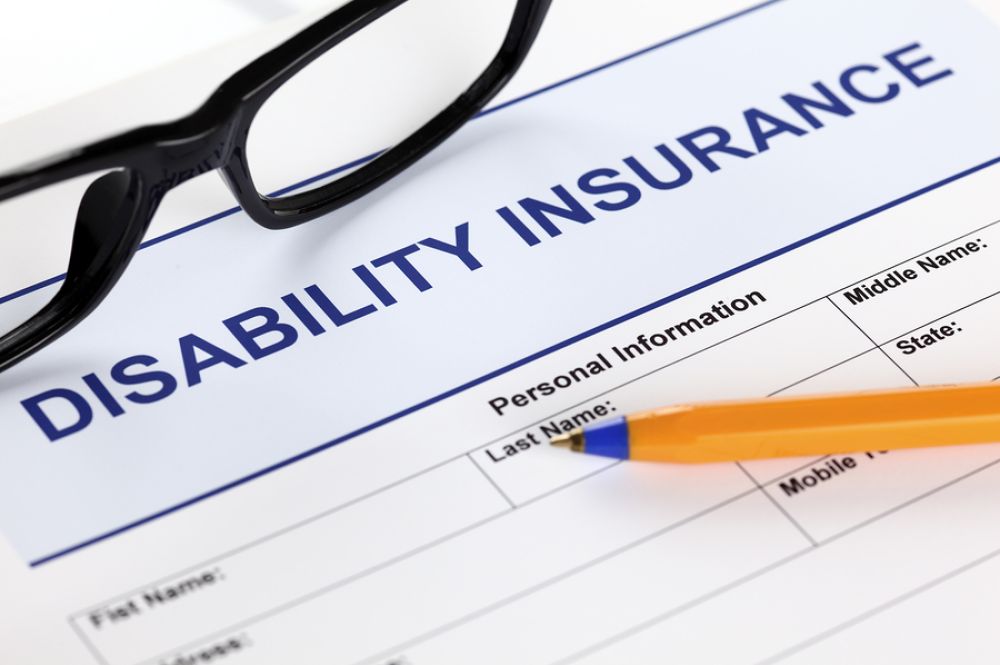How are Vocational Reviews Used to Terminate Long Term Disability Claims?

- #disabilityclaimdenied, #disabilitylawfirm, #disabilitylawfirm #disabilitysocialmedia #disabilityinsurancelawyer, #ERISA #Disabilityclaim #LTDclaim #Disabilitylawyers #Disabilityattorn


Inexperienced claimants make a grave error when they focus solely on their medical condition when filing a claim for long term disability insurance. This is one of many reasons to speak with an experienced long term disability insurance attorney before filing a claim or when your claim has been denied.
Long-term disability claims succeed when strong evidence of both the medical and vocational aspects of the claim are ready to withstand pushback from a disability insurance company that would rather not pay benefits.
A focus on the physical and mental aspects of the claimant’s occupation is crucial when determining their functional ability to perform their job. For example, a claimant who is suffering from chronic pain due to a failed back surgery must not only discuss their physical restrictions and limitations which preclude them from performing their job (i.e., limited ability to sit/stand/walk), but a discussion of how their pain impacts their ability to focus and concentrate should be discussed as well. A claimant should also discuss side effects of medications which impair their cognition, or other aspects of functionality, due to fatigue or other issues.
The LTD companies will turn to vocational guidelines to determine whether or not the claimant is truly unable to perform the duties and tasks of their job – which they will view as a generic occupation rather than a specific job for a specific employer. This occurs both on the onset of the claim and when the claims period shifts from “own occupation” to “any occupation.”
What is a Vocational Review?
A vocational review is a thorough analysis conducted by an expert to determine the specific tasks of the claimant’s job, based on their job title, responsibilities, education, training, earnings, and work history. A vocational review will also include the ancillary tasks that may not be included in a job description but are part of the job.
For example, a regional sales manager for a pharmacy retailer will need to be physically able to travel throughout their region to supervise workers and processes. Depending on the size of their territory, they may need to travel by car or airplane. If the person has a bad orthopedic injury from an accident and cannot easily walk to a car, sit in a car, drive for more than ten minutes and walk around the retail location, they will not be able to perform the full duties and tasks of a regional sales manager.
The response to this kind of scenario from a disability insurance company is often to point out the person can still use the telephone and computer and so there are other jobs the person can perform. However, a person who cannot sit for more than a few minutes in a car is not likely to be able to sit in front of a computer at a desk, making it next to impossible for them to work at this or many other jobs.
The vocational expert will provide detailed evidence on all of the tasks necessary to perform in a job and analyze how the person’s medical condition impacts their ability to perform such tasks.
What is a TSA—Transferable Skills Analysis?
The vocational evidence is further supported by a TSA — Transferable Skills Analysis. The TSA is a series of tests performed by a vocational rehabilitation expert used to determine what other jobs a claimant could perform, based on their knowledge, work experience, education, and other kinds of training. Often, prior skills once learned, even if now stale, will be credited by the insurer in a TSA, to the claimants’ detriment.
Be careful if you are asked to complete a questionnaire as part of the TSA. Remember the point of the questionnaire is to see if you are able to work in another job, not to learn if you are a good sport who is willing to be flexible and open to another field of work. And you are not looking to brag, as you are not seeking work.
The TSA also addresses the following:
- Labor market research to identify what other vocations might be suitable, or any employers who “might” be hiring—not whether you could be hired;
- Determination of the person’s capacity before the injury or illness caused them to be disabled;
- Determination of the person’s capacity to work after the injury or illness caused them to be disabled.
TSAs will seek to match the capacity of the individual and whether their skills are transferable to a different job than the one they were previously performing.
The goal of the TSA is to create an objective view of what kind of employment a claimant might pursue if they are no longer able to perform the material tasks and duties of their occupation.
When Does a Disability Claim Change from “Own Occupation” to “Any Occupation”?
Both TSAs and Vocational Reviews are used in the initial evaluation of a long-term disability claim and when the disability insurance policy switches from “own occ” to “any occ.” Every disability insurance policy is different, but a careful review of the policy will show when this occurs. For most policies, the switch comes at two years or twenty-four months of long-term disability insurance benefits. Often, the analysis will begin months prior to the change in definition date—allowing the insurer to terminate benefits “as of” the transition date.
At this time, the person is considered to be able to work in another occupation, even if they cannot perform the material and substantial duties of their own occupation. And while it’s not easy to navigate and every case is different, the above principles should help to guide claimants.
If your long-term disability insurance policy company has denied your benefits or has terminated your claim, call us at 888-583-4959 for a complementary phone consultation and discussion of your policy provisions.

Written By Justin Frankel
Justin C. Frankel is committed to fighting for the rights of clients when their long term disability insurance claims have been denied, delayed or terminated.
Latest Blog Posts
-
Justin Frankel In 2023 Super Lawyers Magazine
A fall tradition we enjoy every year is the delivery of the New York Metro Super L…Read more -
We Overturn Lincoln’s Denied Claim for a Master Builder/Project Man…
The Law Office of Justin Frankel overturn a Denied Lincoln Insurance Claim for a M…Read more -
October is Breast Cancer Awareness Month
Breast Cancer Awareness Month was created to remind women to have regular breast e…Read more -
Justin C. Frankel Named a 2023 Super Lawyer
Justin C. Frankel, the founder of The Law Office Of Justin Frankel, has been named…Read more -
National Disability Law Firm Announces Release of Updated Consumer …
The Law Office of Justin Frankel is pleased to announce the release of the updated…Read more -
What You Need To Know Before You File for Disability
Navigating claims for long-term disability benefits can be daunting, filled with o…Read more -
CIGNA Senior Advisor with Disability Policy from New York Life
Our client, a 67-year-old Clinical Program Senior Advisor for CIGNA, had been a he…Read more -
Cigna Disability Policy Concerns After New York Life Acquisition
New York Life Purchases CIGNA’s Group Life & Disability Business At the start …Read more -
How A Lawyer Can Help With Your Disability Insurance Claim
If you are facing a long-term disability insurance claim, you want to make sure yo…Read more

-
We know how important our work is to the people we represent, and we’re pleased to share this recent note from a client. Dear Justin and Christina, I wanted to take a moment to express my sincere g…
-
Our 60-year-old client worked for the world’s largest out-of-home advertising company as a Senior Buyer and outdoor furniture supplier, doing everything necessary to manage a contract for twenty ye…
-
Successful ERISA Appeal of Cigna Denial for High-Ranking Aviation Executive from Florida A 61-year old woman with a prestigious role at a leading aviation company never imagined she would stop work…
-
ERISA Case Headed to Trial in Federal Court – Barber v. Sun Life & Health A Federal Judge in Connecticut has scheduled a trial with live witnesses in an ERISA case, to be decided under the arbi…
-
F&N Resolves a Four Year Delay in UNUM Lump Sum Settlement Matter We were contacted by a 56 year-old man from Maryland who had been trying to negotiate a lump sum settlement of his private disa…
-
Our client, a successful New York dentist, was on claim for a number of years with Trustmark Insurance, due to severe orthopedic issues, which did not permit him to safely and effectively practice …
-
“OK, now that I have had a chance to calmly review the documents, I just wanted to thank you for all of your help. I am certain that if I would have tried to do this myself, I would not have had th…
-
The Law Office of Justin Frankel Navigates Complex Issues, From Claim Preparation to Lifetime Management, for Chiropractor A New York chiropractor in his mid-50s was concerned about complex issues …
"*" indicates required fields
Marketing and Design by Array Digital
© 2024 Law Office of Justin C. Frankel, PC









 5.0 Average on Martindale & AVVO
5.0 Average on Martindale & AVVO